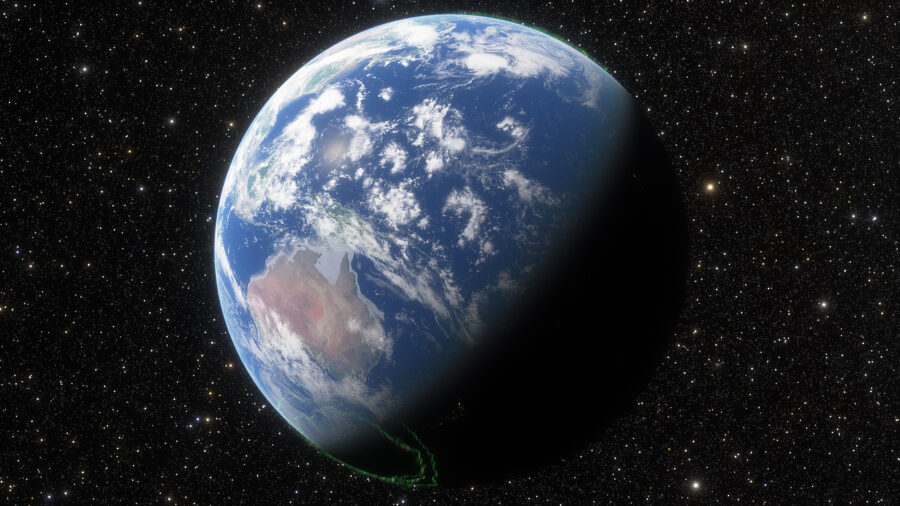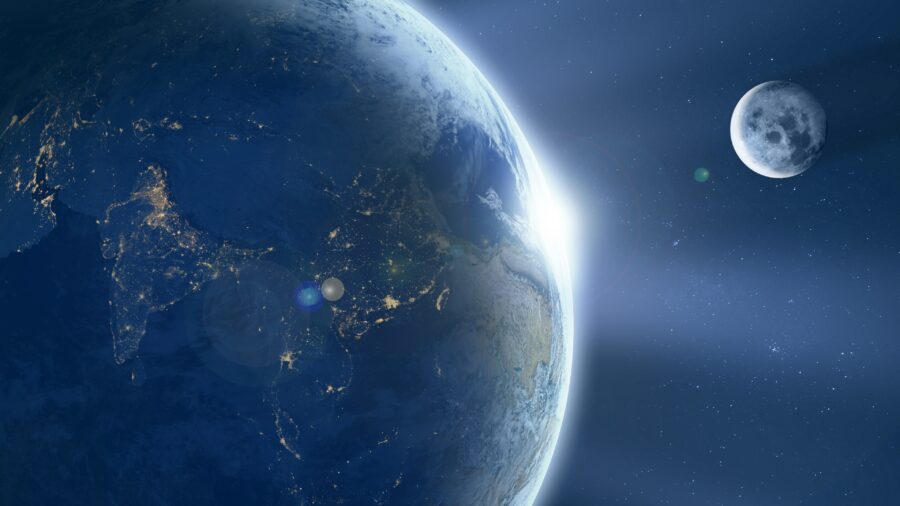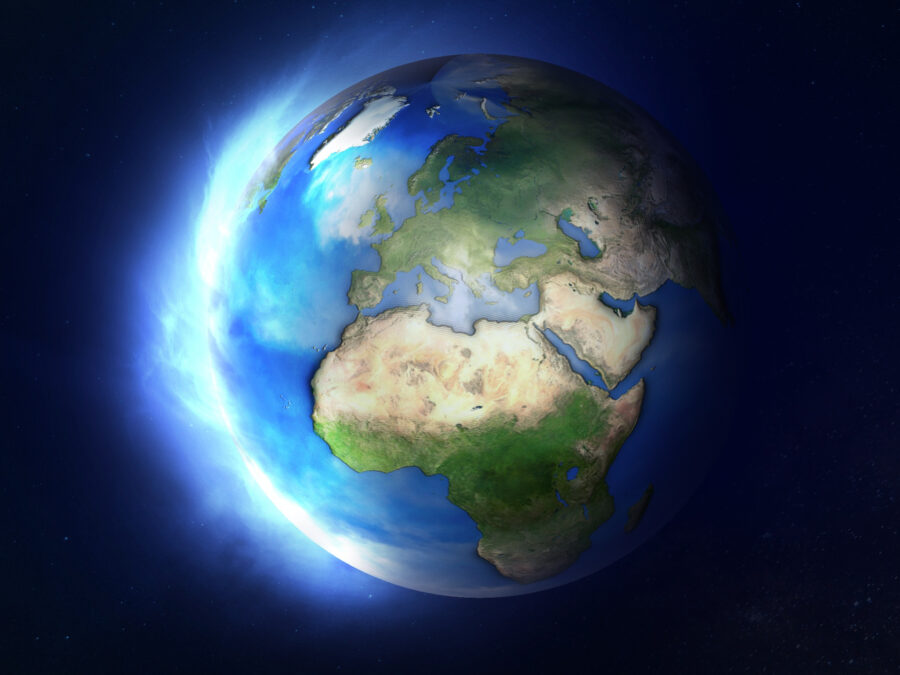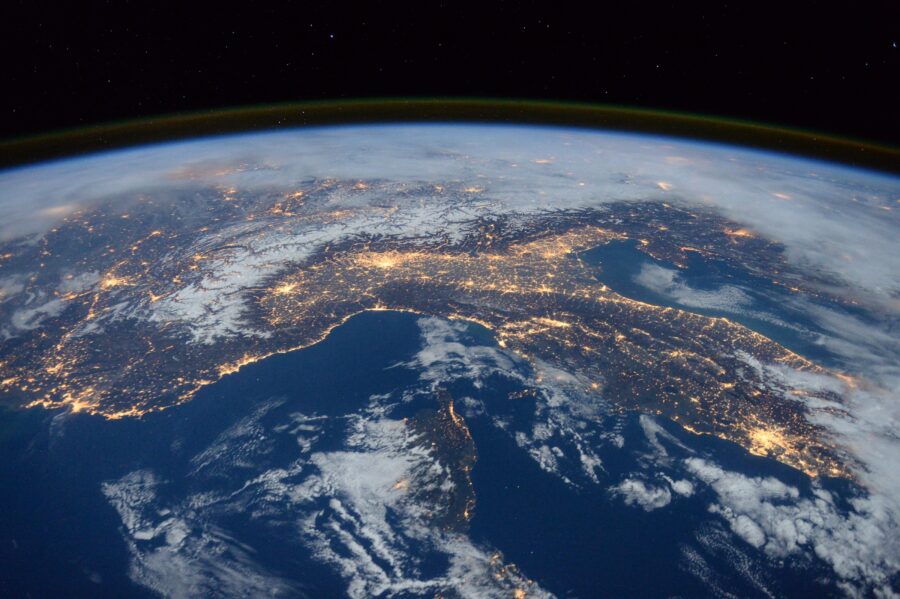The Earth Has Begun Spinning Faster
Earth decided to move a little faster last year.
This article is more than 2 years old

It looks like we humans weren’t the only ones sick and tired of 2020 and wished that it would end quickly. It now appears the Earth itself got tired of 2020 as, according to scientists, it spun faster than we have ever seen it spin.
Last year, scientists recorded our Earth breaking the previous record for the shortest astronomical day, which was set back in 2005. Not only did the Earth break the record once, but it actually broke the record 28 times.
Typically, it takes our Earth around 86,400 seconds to rotate around its axis, a number that while not perfect, is pretty consistent. Graham Jones and Konstantin Bikos wrote on TimeandDate.com, “When highly accurate atomic clocks were developed in the 1960s, they showed that the length of a mean solar day can vary by milliseconds (1 millisecond equals 0.001 seconds).” Milliseconds. Is this cause for alarm?

There are a few factors that can play into the Earth moving faster on its axis. Back in 2003, an atmospheric scientist from Atmospheric and Environmental Research David A. Salstein noted, “Changes in the atmosphere, specifically atmospheric pressure around the world, and the motions of the winds that may be related to such climate signals as El Niño are strong enough that their effect is observed in the Earth’s rotation signal.” Ocean currents also play a big part in how fast our planet spins.
In actuality, the Earth has been rotating slower over the past several decades. Since accurate satellite measurements of the Earth’s rotation began in the early 1960s, scientists have noticed the slowing, causing them to add leap seconds around every year-and-a-half. According to the National Institute of Standards and Technology, the last time scientists had to add a leap second was in 2016 when on New Year’s Eve they added the leap second at 23 hours, 59 minutes and 59 seconds.
The speed at which our Earth moves is pretty much a non-factor to the bulk of those on the planet. But it can be quite an inconvenience to international timekeepers who use ultra-accurate atomic clocks which sets the Coordinated Universal Time (UTC) by which the world sets their clock. When the Earth’s rotation varies more than 0.4 seconds, then the UTC is adjusted. So, while the average person wouldn’t feel this adjustment, it does have a major effect on navigation, computer networks, spaceflight, and astronomers.

2020 was a mess for too many reasons, most of which we do not need to go into. But 2020 also saw the shortest recorded day since scientists have been keeping records when on July 19, 2020, the Earth was recorded as spinning at a rate that was 1.4602 milliseconds shorter than a full 24 hours. The 28 times this happened in 2020 now has scientists concerned that they may now have to add a negative leap-second at the end of 2021.
They are now concluded that on average, each astronomical day could equate to 0.05 shorter, and over the entire course of 2021, it would add up to a 19-millisecond difference. “It’s quite possible that a negative leap second will be needed if the Earth’s rotation rate increases further, but it’s too early to say if this is likely to happen,” physicist Peter Whibberley of the National Physics Laboratory explained to The Telegraph. “There are also international discussions taking place about the future of leap seconds, and it’s also possible that the need for a negative leap second might push the decision towards ending leap seconds for good.”
Depending on what scientists see and record, they may not wait until the end of the year to add the negative leap-second. In the past, leap seconds have been added either on the last day in June or the last day in December. So, if the trend continues, scientists may make June the time they add the negative leap-second.

So, the bad news is that adjustments will need to be made at a scientific level, something scientists are smartly preparing for. But the good news is, if 2021 begins to take on the ominous look of 2020, we’ll have less time to deal with it.












